by Sam Jones, Pastor, Faith Baptist Church, Hudson, Iowa
Linchpin:
-
-
- A pin inserted through the end of an axletree to keep the wheel on;
- Something that holds the various elements of a complicated structure together
-
As you can imagine, a linchpin is very important. If it is absent, a wheel likely will fall off, causing an entire machine to come to ruin—all for lack of a simple and small component.
This is true in the figurative sense as well. Sometimes something small and simple is absolutely vital to the whole. A linchpin keeps the more complicated and often more prominent pieces together and working in unison, making it possible for the entire item or device to function properly.
In our current political climate, I believe we are seeing many elites push on what I would call the “linchpin” right that holds the First and Second Amendments together. Being active in the pro-gun conservative world, I couldn’t tell you how many times I have heard the phrase “The Second Amendment is there to protect the First!” I wholeheartedly agree with this sentiment. After all, how else could we effectively defend our rights to free speech and religious liberty against those who would use force to implement a gag-order or try to impose state-mandated religion?
At issue is the fact that the Second Amendment doesn’t simply state that we have the right to individually bear arms. A single person owning guns can’t do much to effectively oppose a tyrannical government. Ultimately, we must remember that the Bill of Rights was not put in place to limit the people of the United States; it was approved and adopted to curtail the power of the government. What is this “linchpin” right that holds together the prominent parts of the First and Second Amendments? It is the right of the people to peaceably assemble.
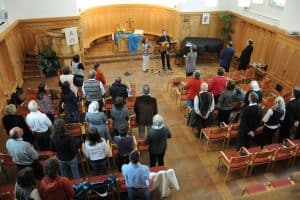
We must remember that the Bill of Rights was not put in place to limit the people of the United States; it was approved and adopted to curtail the power of the government. What is this “linchpin” right that holds together the prominent parts of the First and Second Amendments? It is the right of the people to peaceably assemble.
Let’s examine the right of the people to peaceably assemble in its context. This right is one of the rights guaranteed by the First Amendment to the US Constitution.
Congress shall make no law respecting an establishment of religion, or prohibiting the free exercise thereof; or abridging the freedom of speech, or of the press; or the right of the people peaceably to assemble, and to petition the government for a redress of grievances.
Understanding the parts leads to an understanding of the whole
First, let’s address the phrase “Congress shall make no law…” Understanding this phrase is key to understanding the Constitution and the First Amendment. The reason only Congress is mentioned here actually is very simple: The Constitution gives Congress alone the power to make laws.
The next few phrases are perhaps the most well-known. These are the rights you probably recall when you think of the First Amendment. We see here exactly what we expect to see—
-
-
- freedom of religion (both in equality and in exercise) and
- freedom of speech. Tagged on (but equally important) is
- freedom of the press. No doubt freedom of the press is an important element that stands supportive of a citizens right to free speech!
-
The rights to peaceably assemble and to petition the government for redress of grievances are the fourth and fifth rights upheld.
An Inseparable Link
Notice carefully how the words or and and are used in this amendment: “Congress shall make no law respecting an establishment of religion, or prohibiting the free exercise thereof; or abridging the freedom of speech, or of the press; orthe right of the people peaceably to assemble, and to petition the government for a redress of grievances.” It is clear that “the right of the people peaceably to assemble” and their right “to petition the government for a redress of grievances” aren’t elements that stand apart, but rights that are inseparably linked together.
It is in these last two rights named that we see the “linchpin” between the First and Second Amendments. A major part of our right to assemble is based upon our ability—indeed, our right—to disagree with the government! Disagreement here refers not merely to having an opinion different from that of the government, but being able to express that opinion and being able to work to influence change in appropriate and meaningful ways.

In the midst of the coronavirus pandemic, we have civil authorities dictating to us that we cannot gather together to peaceably assemble. In the name of maintaining our safety (a worthwhile goal, of course), our leaders are convinced theyknow what is best, and in some cases they aren’t hesitating to use force to make us comply. Yet, at the same time, they are eliminating any opportunity for debate or for individuals and groups to assemble and challenge – “to petition the government for a redress of grievances” – them in any significant way.
Essential Rights For Both Ordinary and Critical Times
This may seem like a small matter, but in a government that is supposed to be “of the people, by the people, for the people”; it is more than significant. The purpose of the Bill of Rights is to limit the government, so the First Amendment preserves the right of the people to peaceably assemble, in order that they might be able to challenge government effectively and with authority, pushing back in appropriate ways, yet in ways that can make a difference. Today, both the right to assemble and the right to petition government for a redress of grievances have been curtailed in the name of safety, and even with an attitude of “we know better than you.” Many have argued that in times of crisis the Bill of Rights, including the right to peaceably assemble, can be set aside. Our Founders understood that these rights were critical during a crisis, even especially critical during a crisis. They offered no exceptions in the Constitution for suspending the limitations on government the Bill of Rights imposes!
Today, both the right to assemble and the right to petition government for a redress of grievances have been curtailed in the name of safety, and even with an attitude of “we know better than you.”
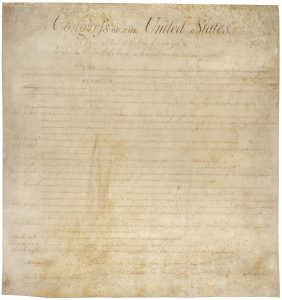
You see, the right to peaceably assemble was not something our Founding Fathers thought of after Independence was won. On October 14, 1774, they penned the Declaration and Resolves (also known as the Declaration of Colonial Rights, or the Declaration of Rights), and stated:
[T]he inhabitants of the English Colonies in North America, by the immutable laws of nature, the principles of the English constitution, and the several charters or compacts, have the following rights:…[T]hey have a right peaceably to assemble, consider of their grievances, and petition the king; and that all prosecutions, prohibitory proclamations, and commitments for the same are illegal. (Emphasis added.)
Embedded deeply in American history is the right to peaceably assemble. It is, frankly, un-American to deny this right.
Holding the First and Second Amendments Together
Now let’s examine the Second Amendment, as well as how the right to peaceably assemble bridges the First and Second Amendments together. The Second Amendment reads,
A well-regulated militia, being necessary to the security of a free state, the right of the people to keep and bear arms, shall not be infringed.
When we think of the Second Amendment, we often think of the second part, which tells us that “…the right of the people to keep and bear arms, shall not be infringed.” This is undoubtedly a major component of the amendment, as it recognizes the individual’s right to personally defend himself. This right of self-defense is tied to the rights to life and limb. As previously stated, the Bill of Rights was designed to limit government. This last clause in the Second Amendment is a necessary part of that limitation, as armed citizens are more difficult to place under tyranny.
Yet even an armed individual is no match for any tyrannical government. This points us to the first – and often overlooked – clause of the amendment, We present it here with the amendment’s all-important four-word conclusion: “A well-regulated militia, being necessary to the security of a free state… shall not be infringed.”
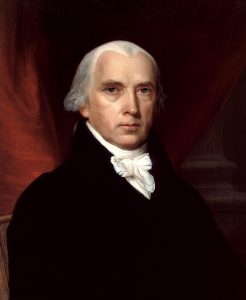
Note that the militia is “well-regulated.” A militia is an organized military body that generally is made up of volunteers. The right to have a militia, as our Founding Fathers pointed out, is “necessary to the security of a free state.” Without this right our Founders were convinced our nation would not be be secure; it and would be in danger of losing her status as a nation of free men and women.
A militia is not a mob or a group of rioters. Mobs and riots arise out of public disorder and cause the same. By contrast, militias are organized. How are they formed? Through peaceable assemblies! The groups or assemblies may organize for a host of different reasons, but undoubtedly one of the intents and purposes of the Founders was to allow a peaceable assembly to organize a militia. This is how the right of the people to peaceably assemble is the linchpin, the component holding together the first two amendments of the Constitution of the United States.
If the linchpin is pulled, everything falls apart
Today the right of the people to peaceably assemble is being brutally attacked through unlawful executive orders all across our nation. If we lose the right to assemble, we also lose the proper means of petitioning our government, organizing a militia, and ultimately an effective right to bear arms and protect our rights of free speech and religious liberty. Our Founding Fathers did not believe our freedom was safe without this right, nor did they believe we could be truly safe as a nation unless we were free.
The right to peaceably assemble may, at first glance, seem like a small and somewhat insignificant right that is expendable during a time of crisis for the sake of safety. However, in reality, it is the linchpin holding some of our most sacred rights together. Will we as Americans put up with this attack on our Constitution—the true law of the land—and the blatant suspension of our God-given rights, or will we speak out and hold our government accountable?
Will we as Americans put up with this attack on our Constitution—the true law of the land—and the blatant suspension of our God-given rights, or will we speak out and hold our government accountable?
The clock is ticking, America. Will you hold on to your liberties or surrender them to a government that “knows better than you”?
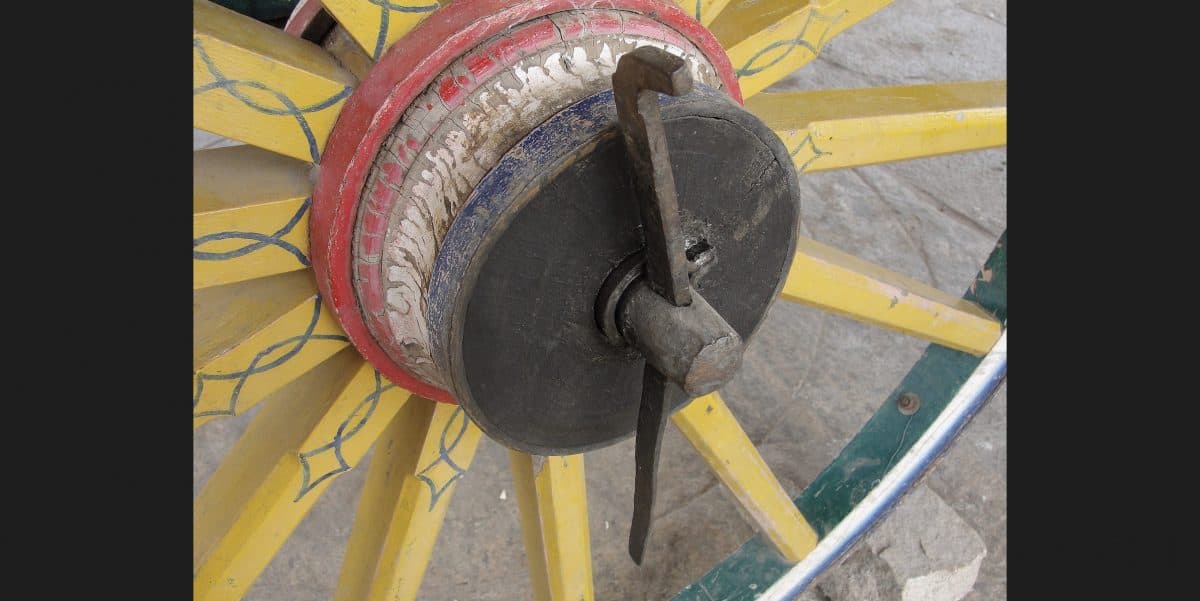
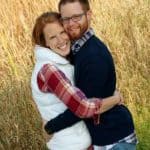 Pastor Sam completed an intense pastoral internship at Hagerman Baptist Church and served as a chaplain at Heritage Care Center in Iowa Falls, Iowa before accepting the call to pastor at Faith Baptist Church in Hudson, Iowa. He loves people and his goal is to make disciples of Christ by personally, prayerfully, and persistently investing the Word of God into others.
Pastor Sam completed an intense pastoral internship at Hagerman Baptist Church and served as a chaplain at Heritage Care Center in Iowa Falls, Iowa before accepting the call to pastor at Faith Baptist Church in Hudson, Iowa. He loves people and his goal is to make disciples of Christ by personally, prayerfully, and persistently investing the Word of God into others.